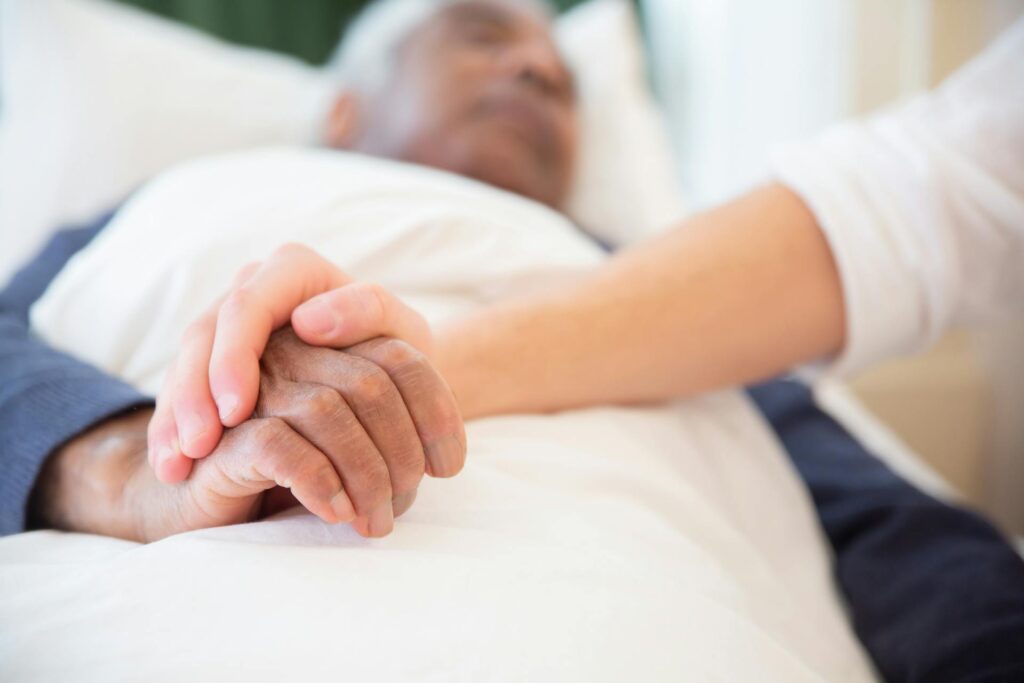Caregiving from home can be one of the most meaningful acts of love, but it often comes with emotional strain, especially when serious illness or hospice care is involved. As October closes and days in Northeast Ohio grow shorter and colder, these challenges may feel heavier than ever. Less sunlight, quieter evenings, and a growing list of tasks can bring extra stress to both caregivers and patients.
Mental health support for caregivers is not just a good idea during these colder months—it is often needed. Many caregivers might not ask for help directly, but a calm check-in can offer welcome relief. This is where home-based psychiatric nursing quietly steps in. It is not loud or clinical. Instead, it is a gentle, steady presence that can make hard days feel more bearable.
When Caregiving Becomes Emotionally Overwhelming
Many caregivers are running on empty well before they say anything about it. The days can be nonstop, filled with physical tasks and tough decisions. When a loved one is in hospice, these demands can weigh even more, especially in the home.
By late fall, some days feel long even before they get going. The sun sets early, the house can seem colder, and fewer visitors stop by. With less social time and more responsibility, caregivers often feel exhausted in ways that are hard to explain. Stress may show up in small ways—shorter tempers, skipped meals, missed sleep, or pulling away from routines.
It often builds slowly. Someone who used to have energy is now tired before noon. Little things feel overwhelming and talking about it can feel even harder.
Long-term stress rarely shows up all at once. Left unchecked, it can lead to caregivers feeling alone, frustrated, or emotionally stuck.
What Home-Based Psychiatric Nursing Looks Like for Families
Psychiatric nurses do not arrive with fanfare. They arrive with steady care and patience. A visit may mean sitting quietly at the kitchen table, prepared to listen. Sometimes, it is lending a hand during a tough moment or simply noticing something that feels different.
These nurses do not visit to “fix” things or bring dramatic change. There is no pressure, no long paperwork, and no need to explain everything from scratch. Support comes to the door, fitting itself gently into the daily routine of the home.
For families already balancing hospice schedules and medical care, this familiarity can be a relief. Home-based psychiatric care does not add to the workload. Instead, it eases what is already there, allowing caregivers and loved ones space to talk about feelings without stress or judgment.
Each visit is shaped by what the family needs. Some days, the support looks like a quiet talk about an upcoming change. Other times, it is just being present with someone who is too worn down for conversation. This kind of care fits into hospice routines without any disruption.
These services often include an emotional assessment both for patients and family members, which helps guide the rest of the care plan. VNA of Ohio’s psychiatric nurses work closely with the broader home care or hospice team, making mental health check-ins a natural piece of daily support.
How Psychiatric Nurses Support Emotional Health for the Whole Household
When caregivers hold back from talking about stress, psychiatric nurses are often the first to notice something is off. Subtle signs—a change in tone, unfinished chores, long silences—offer clues. Because care happens in the home, none of these details are missed.
Emotional stress is not contained to one person. If someone is stretched too thin, it alters everyone’s routines, from meals and sleep to how smoothly the day flows. During late October, a nurse checking in is not just there to watch the patient’s health. Very often, that nurse ends up asking the most important questions to the caregiver too: “How are you holding up?”
By tailoring the support—changing the time of visits or paying attention to signs of tiredness—psychiatric nurses can help everyone at home feel steadier. That sense of steadiness brings a difference you can feel. It might show in having a warm meal ready, fewer missed medications, or calmer conversations around the dinner table.
This slow and steady help builds up over time, preventing bigger emotional problems from slipping in unnoticed.
Building a Care Team That Includes the Caregiver
Home care can often seem like it is focused only on the patient. But we see that everything works better when the caregiver is included, too. Mood, communication, and even medical routines are smoother when everyone shares in the support.
Experienced psychiatric nurses never function on their own. They partner with aides, family members, hospice nurses, and sometimes therapists. That combined effort means any shift in mood or behavior is noticed, shared, and discussed quickly.
Caregivers do not always have an easy place to ask for help. When a nurse sees something and brings it up gently, it can open the door to an honest conversation. Over time, these small check-ins help the caregiver realize they are part of the care team, not just someone helping out in the background.
Providing mental health support for caregivers is not an added bonus. It is a normal part of quality home-based care—helping both patient and caregiver find moments of relief in a stressful time.
A Quieter Kind of Help That Makes a Lasting Difference
Colder weather and longer nights can make caregiving feel heavier than ever. The house feels quieter, the hours more overwhelming, and the work never-ending. Sometimes, just one steady presence is all it takes to lighten the load.
Emotional support never needs to be loud. The right words at the right moment make a world of difference. Over the weeks and months, this quiet kind of caring builds comfort, trust, and strength even when days are tough.
Home-based psychiatric care brings more than a series of check-ins. It provides opportunities for caregivers to breathe, reflect, and gather themselves—all without stepping away from their loved ones. That peace lets families get through the hardest days of the year, and helps everyone feel just a little less alone.
At VNA of Ohio, we know how heavy caregiving can feel—especially when supporting a loved one through hospice care at home. As the days grow colder and the nights longer, emotional needs often grow, too. We believe in the quiet strength of familiar, steady support. If someone in your home could use mental health support for caregivers, we’re here to listen and help however we can.







